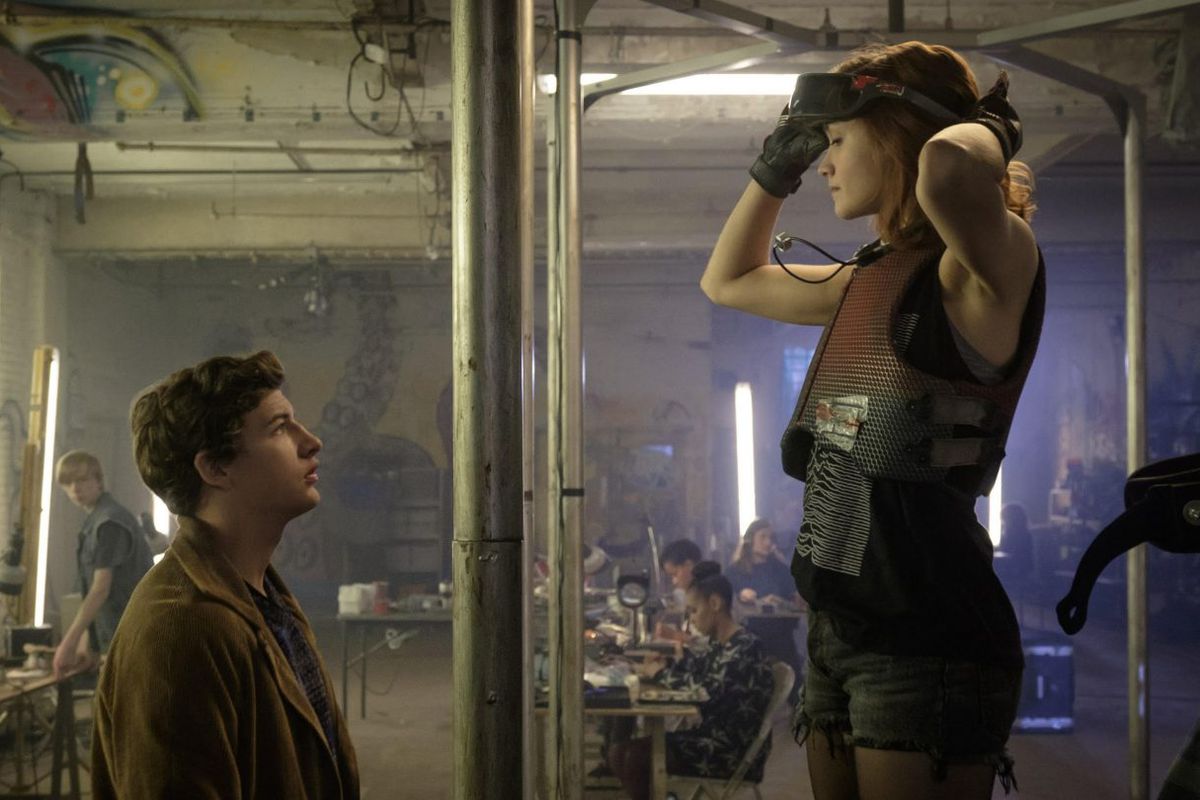Ignorance in A.I. Artificial Intelligence and Ready Player One
Steven Spielberg frequently views the future as an end of one chapter, and the beginning of another. It never collapses into apocalypse – the Earths transcends its limitations, or transforms into a new state of sustainability. Think of the blissful coda of Close Encounters of the Third Kind, in which aliens flying away into the infinite cosmos isn’t a depiction of terror, but a comfortable acknowledgement of the unknown. Or ponder Jurassic Park’s ending: sublimely letting go of science’s bombardment against ethics.
The 71-year-old filmmaker believes in evolution, not desolation, and even the worst outcomes of humanity are gradual, inevitable, and serene. Ready Player One, Spielberg’s latest, finds commonality in this method of philosophizing, of course, but it also aligns closely with A.I. Artificial Intelligence, another work birthed from one creator and handed off to another. The vision of the world in Ready Player One is a perpetual stasis, with bodies only running in place on treadmills to enhance their virtual experiences, and fighting for their ownership and success of product and material that doesn’t exist on a tangible level. It is a slow death for humankind, but the start of a new form of being, a new way to exist, achieve popularity, meet others, and find meaning. Their virtual landscape is the new normal. It doesn’t mean Earth will die out in their lifetime (there is no sense of environmental dangers); they will simply log out of reality more and more. The OASIS is their world.
Spielberg’s conception of Ernest Cline’s novel has received tremendous backlash as well as high praise for molding someone else’s story into a matter malleable enough for his making. The film’s extensive problems aren’t nearly as interesting as Spielberg’s depiction of a world currently in flux, and beyond saving – a cheery, crowd-pleasing portrait of an abyss. It is eerily like A.I. and its embodiment of humanity; replication being the only advancement due to the limit of human potential. The highly-advanced A.I. at the end of the titular film find comfort in the spaces that mankind could expand and dissect, although it ended as soon as it began, a blink in the mind’s eye. The OASIS is similar in that it is an unoriginal copy of a copy – a reboot of a series inspired by a film adapted from a novel – and it still captivated the world. Humanity wants something new, even when it basically isn’t. It is why, in the end, artificial intelligence will be embraced and technology will power on long after the collective corporal mass has had their last breath – it is a reminder of what we’ve done, and the barrier we’ve forever longed to barrel past.
A.I. Artificial Intelligence’s entire conclusion – still the finest sequence of Spielberg’s career – is based around those limitations. David doesn’t want to die. He wants to be with Monica. But she’s dead. And he accepts that. So, he goes to sleep, too. His resurrection and unlimited lifespan means nothing in the face of the meaning humans brought to themselves and others before clocking out. Having a birthday with his surrogate Mother for one day before her fabricated memory loses all traces of construction, David makes a wish before blowing out his candles. He states: “It already came true.”
It’s a dark, *dark* ending – suggesting the death of our lives is the only significance for ourselves, and what we create will outlive us but never define us. It goes against everything capitalism strives to sell to America’s youth. Ready Player One extrapolates on this, exploring the control society can manufacture under the guise of free-will and success. A major moment in Spielberg’s most recent work is when a section of the ‘stacks’ (glorified, verticalized slums) is destroyed. Hardly anyone sees it coming: they’re too busy, lost in their virtual reality goggles. To make machines of people, the futuristic culture in Ready Player One only had to sell them a video game. And they work, and work, and work, all for intangible coins and the hope of achieving the impossible – winning the ‘golden egg’ hidden by its creator and being awarded all the stock/funding in line with the OASIS. It’s the only way to get ahead, and besides, why seek out opportunity in the real world when you can have anything you want without leaving your home?
It is why both films share a mutual thread – ignorance is bliss. David goes to sleep with Monica at the end of A.I. in an unconscious yearning to be where she is, although an android, deep down, understands that it is nowhere in particular. Ready Player One, in blockbuster fashion, has a “happy” ending, one which forces the addicted-populace to look around and not solely live in their game. It practically says the same thing: I’d rather be asleep than awake. The difference lies in the hope for each respective future. A.I. is lonely. Ready Player One is interconnected, all-consuming. When you go to sleep in Ready Player One, you wake up in the real world, and it is changing for the better. Too bad they won’t notice it.















